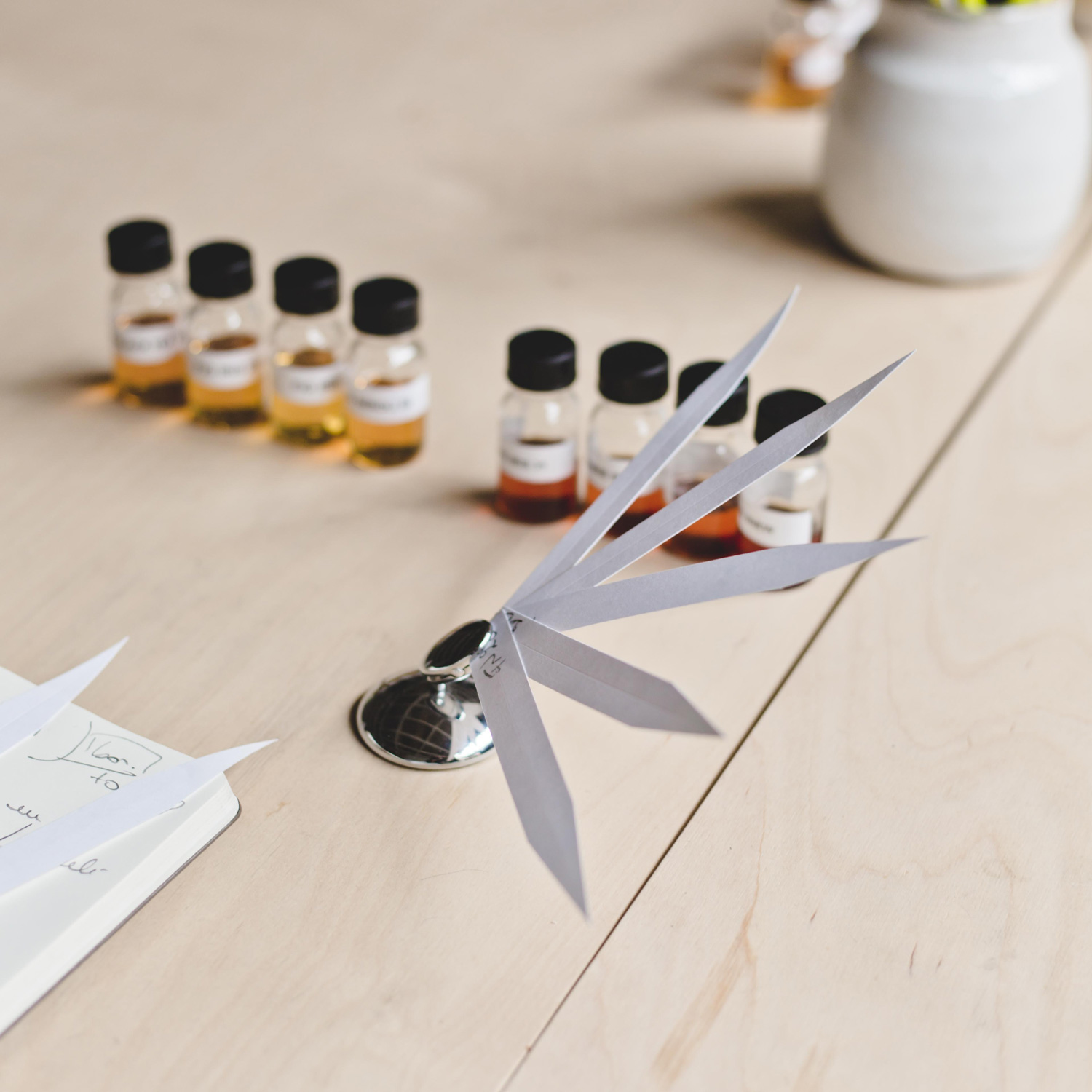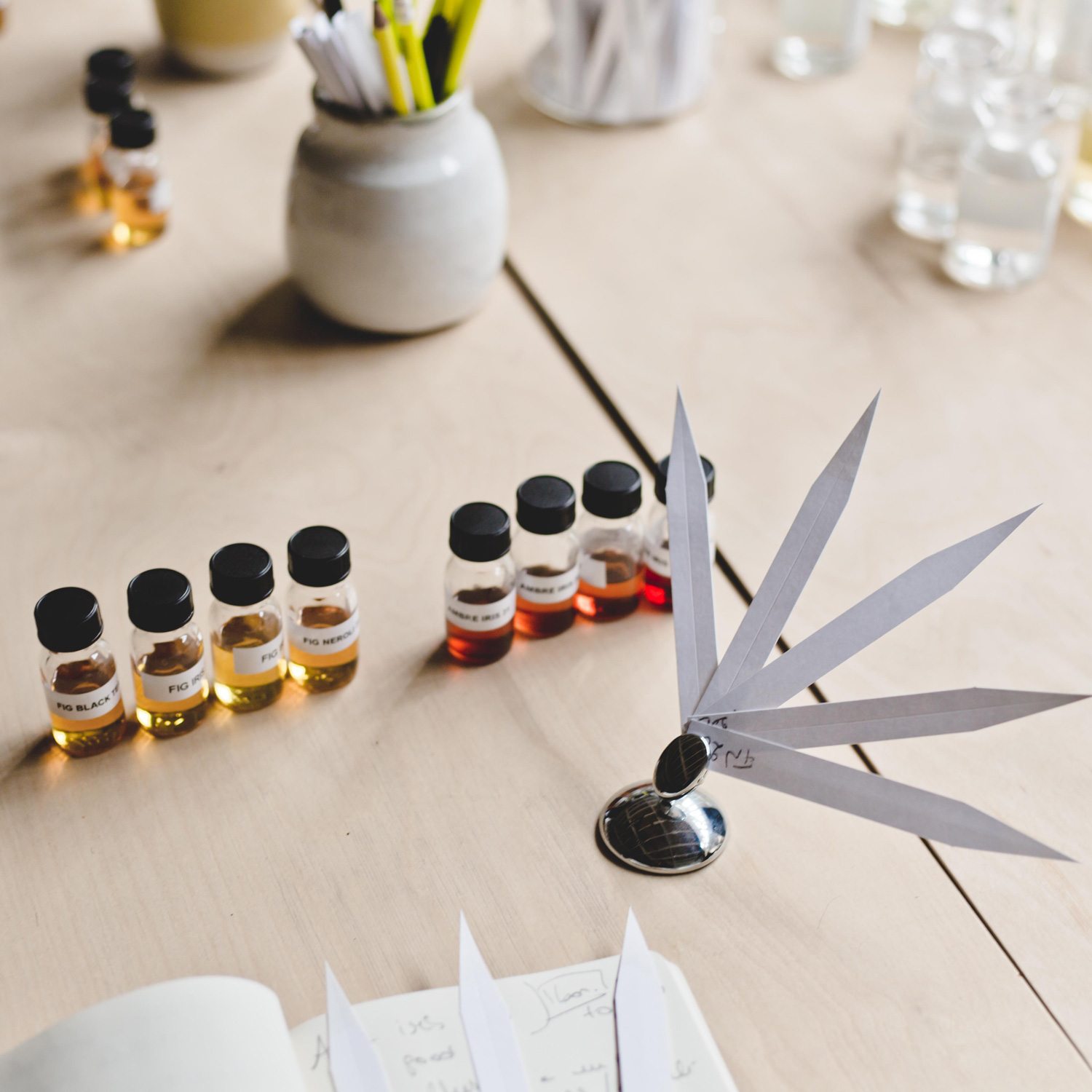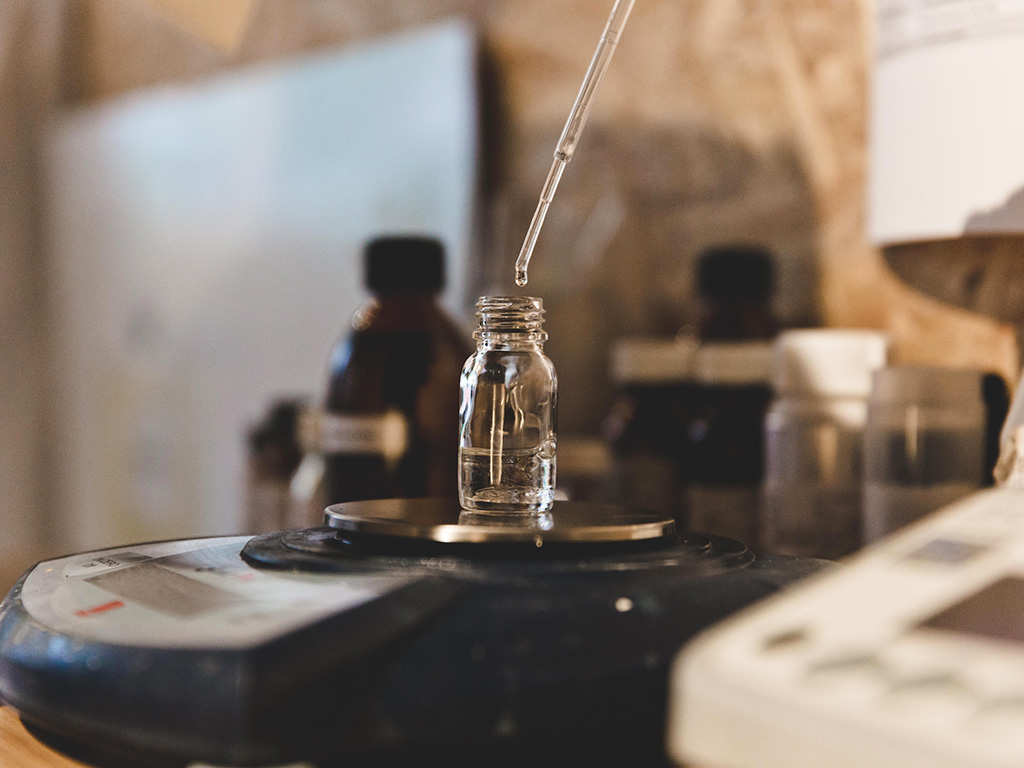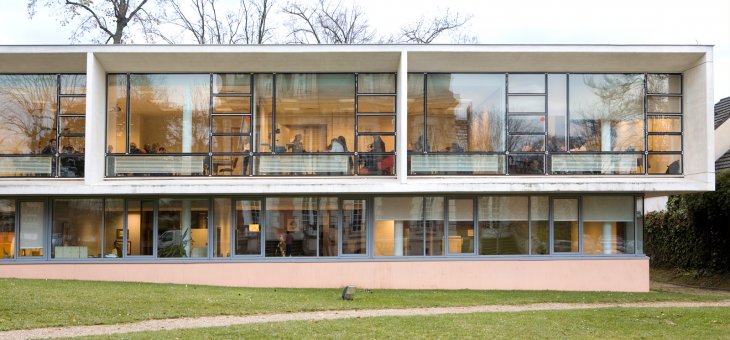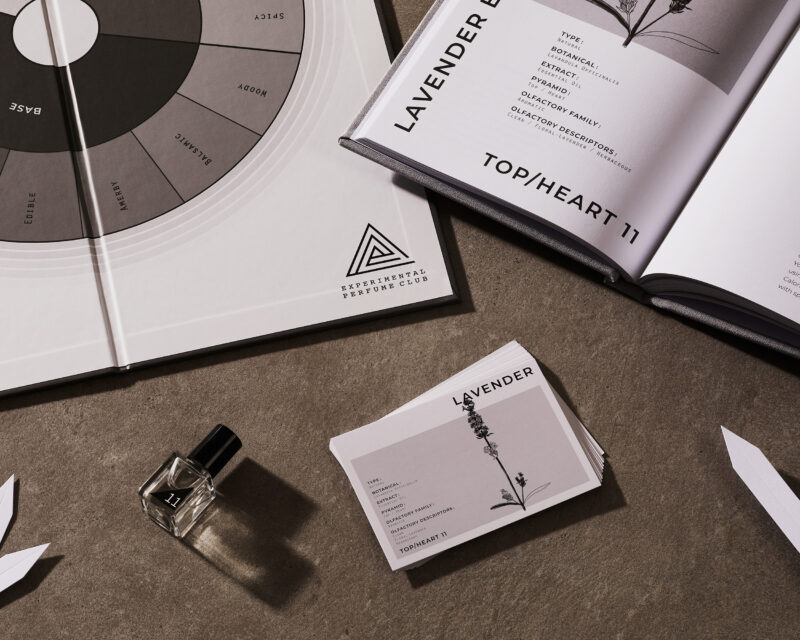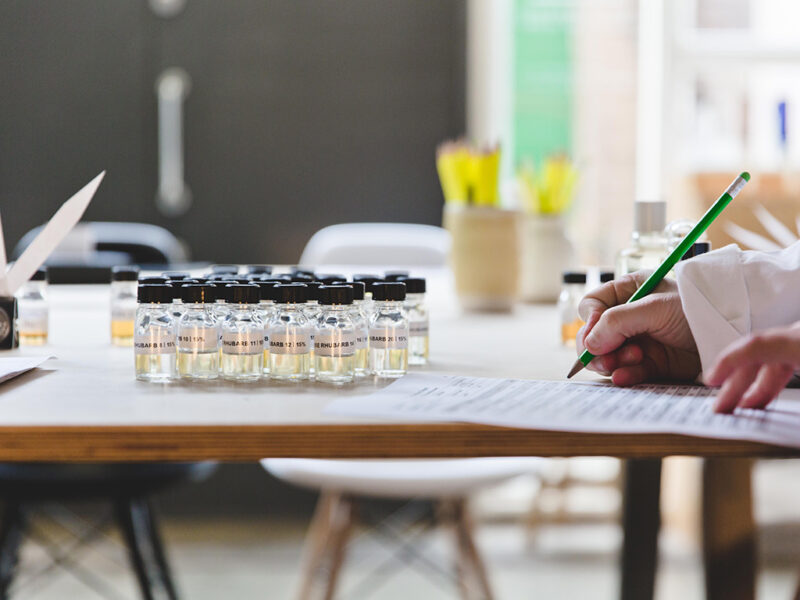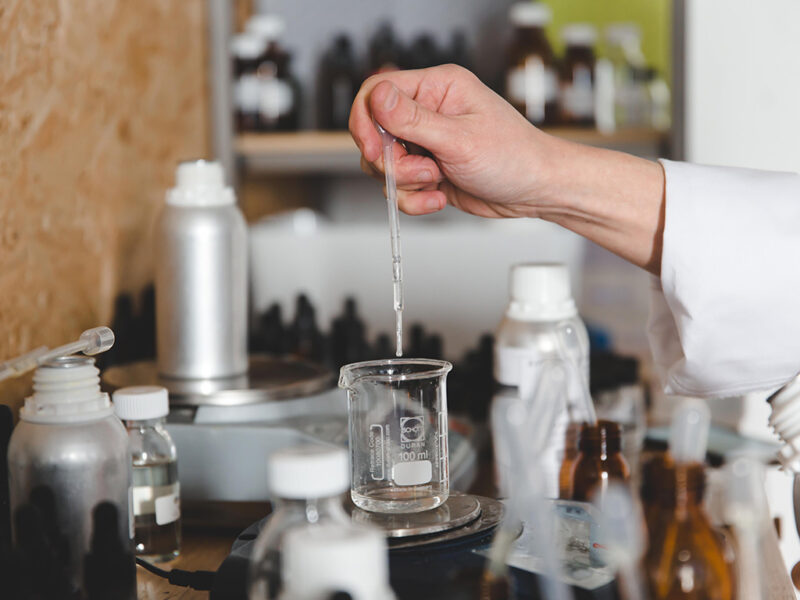Perfumery is known to be quite a closed world. If you’d told any of us that we could work in fragrance – smelling for a living – when we were children, it would have probably be welcome with surprise as most people would not even think of it as being a possible job. Thankfully now, with the internet and the democratisation of expertise and crafts into the mainstream, there are a lot more ways you can immerse yourself in the world of smell. We share our top 5 tips on how to plunge yourself into perfume.
1. For the social: Join a Club or Community
Want to widen your knowledge of fragrance but not sure where to start? There’s plenty of communities to join or get involved in. The Perfume Society has a VIP Club which gets you access to their scent-devoted magazine, The Scented Letter, as well a host of other benefits.
There are groups like Perfume Lovers London who organise tours and events about scent – all of which are undoubtedly a great place to meet others with a similar interest in scent. And for people who really want to immerse themselves in conversation, head to Facebook. There’s a number of fragrance groups for you to discuss, review, help others in their fragrance quests and even swap scents you don’t like!
2. For the readers: Read books, Magazines and Blogs
There’s certainly a wealth of information on the internet to help you better your knowledge of scent, from individual blogs with opinion pieces to more reputable sources of factual knowledge.
We think one of the best magazines available is Nez La Revue. Written by a collective of scent enthusiasts and experts based in Paris, you’ll be delighted to hear that the magazine is available in English! We highly recommend a subscription.
Since the world of blogging exploded a few years back, there have been some excellent voices to be heard on the topic of scent. We love Persolaise for his quick-fire critique and podcast Fume Chat. Then there’s The Sniff, a blog that focuses on niche perfumery, which does away with the jargon of perfume if you’re unaccustomed to it. (If you are ever struggling with the wording within fragrance writing, have a look at our Fragrance Glossary, a dictionary of scent vocabulary.)
When it comes to scent, there’s always a lively discussion going on somewhere online between customers. Websites like Basenotes and Fragrantica always have active forum sections, as well as interesting features for the more well-trained nose. For beginners, The Perfume Society is a good place to start. They’ve an abundance perfume info from the stories of perfume houses, to interviews with perfumers, via plenty of perfume history.
For more factual research and info, as well as interviews with industry heads, look to the blog sections of perfume houses such as IFF, Givaudan or CPL Aromas websites.
Play perfumer at home and learn about fragrance families
3. For the curious noses: Join a Perfume Workshop
Workshops were how the Experimental Perfume Club began. We wanted to democratise perfumery and bring the ability to blend to the people. Letting anyone with a love of scent have a play. We host sessions for a range of abilities from our Apprentice Workshop for beginners to our more advanced Expert Masterclass – and once you’ve become acclimatised with ingredients you can stop by our Open Lab Sessions, where you can play with perfume to your heart’s content.
We also love the excellent Institute of Art and Olfaction across the pond in LA. There you will find a wide array of courses, workshops and open-lab style sessions.
4. For the practical people: Blend At Home
Blending perfume at home is a great place to start your journey with scent. You’ll be in the comfort of your own space, free to formulate through trial and error, take your time and learn in a way that suits you.
Take an Online Perfumery Course to guide you through the process. Our Online Perfume Creation Course is a great place to start and will give you all the necessary guidance and material to start your practise at home, wherever you are in the world.
If you prefer just experimenting with ingredients sets will help you learn the smells of each individual note, a process which is the starting point to becoming a perfumers – it is how they create their palettes! We created a comprehensive How-To beginners guide to blending fragrances at home, with some very handy tips, which we urge you to take a look at if you’re embarking on the path of fragrance creation at home.
Join Our Online Course
5. For the serious ones: Go To A Perfumer School
You’ve read the blogs, you’ve played at a workshop, and now you want to get to the nitty-gritty of fragrance and want to become a perfumer or perfume professional such as an evaluator. Well, there are options for that too…
Our founder, Emmanuelle Moeglin, attended the ISPICA School, a prestigious academy that leads in the fields of fragrances, cosmetics and flavour, and loved her experience there. Founded in 1970 by Jean-Jacques Guerlain (yes, of that Guerlain family) it has trained an immense amount of professionals now working in the industry, from fully-fledged perfumers to evaluators, and everything in-between. It offers full time studying as well as shorter summer courses.
L’Ecole Supérieure du Parfum in Paris also offers a great 5 years training straight after school.
Then there’s the Givaudan Perfumery School which sits on the outskirts of Paris, with another campus – the first outside of France – in Singapore. Other perfume houses such as Mane, IFF and Firmenich all have their in-house training academy, which are among the best in the world, although extremely competitive to get in!
If you want to retrain and start a new career, you could study in the world’s perfume capital at the Grasse Institute of Perfumery, a reputable school which holds classes in French, English, Chinese and Russian. Or perhaps you’re London based and want something local? Well, then we’d recommend the Design with Scents course at the University of Arts London, which covers topics like the perfumer’s palette, blending accords and translating ideas into scent.
So, whatever route you take on your journey to scent, we hope it’s an enjoyable one!
